Smart Home Security: Protect Your Space with Automated Systems
16 December 2024
In today's digital age, the concept of home security has evolved far beyond a simple lock on the door. We're living in a world where smart home security systems use artificial intelligence, automation, and the internet to keep our homes safe. These systems may sound futuristic, but they're becoming increasingly accessible to the average homeowner. And honestly, they’re pretty impressive.
From video doorbells that let you see who’s at your front door (even when you're at work) to motion sensors that alert you when someone steps on your lawn, smart home security is the future of keeping your space safe. But is it worth the investment? How does it actually work? And what should you be looking for when deciding which system to buy?
In this article, we'll dive into the ins and outs of smart home security, covering everything from how it can protect your home, the most popular devices on the market, and ways you can get started today.
Let’s jump right in!
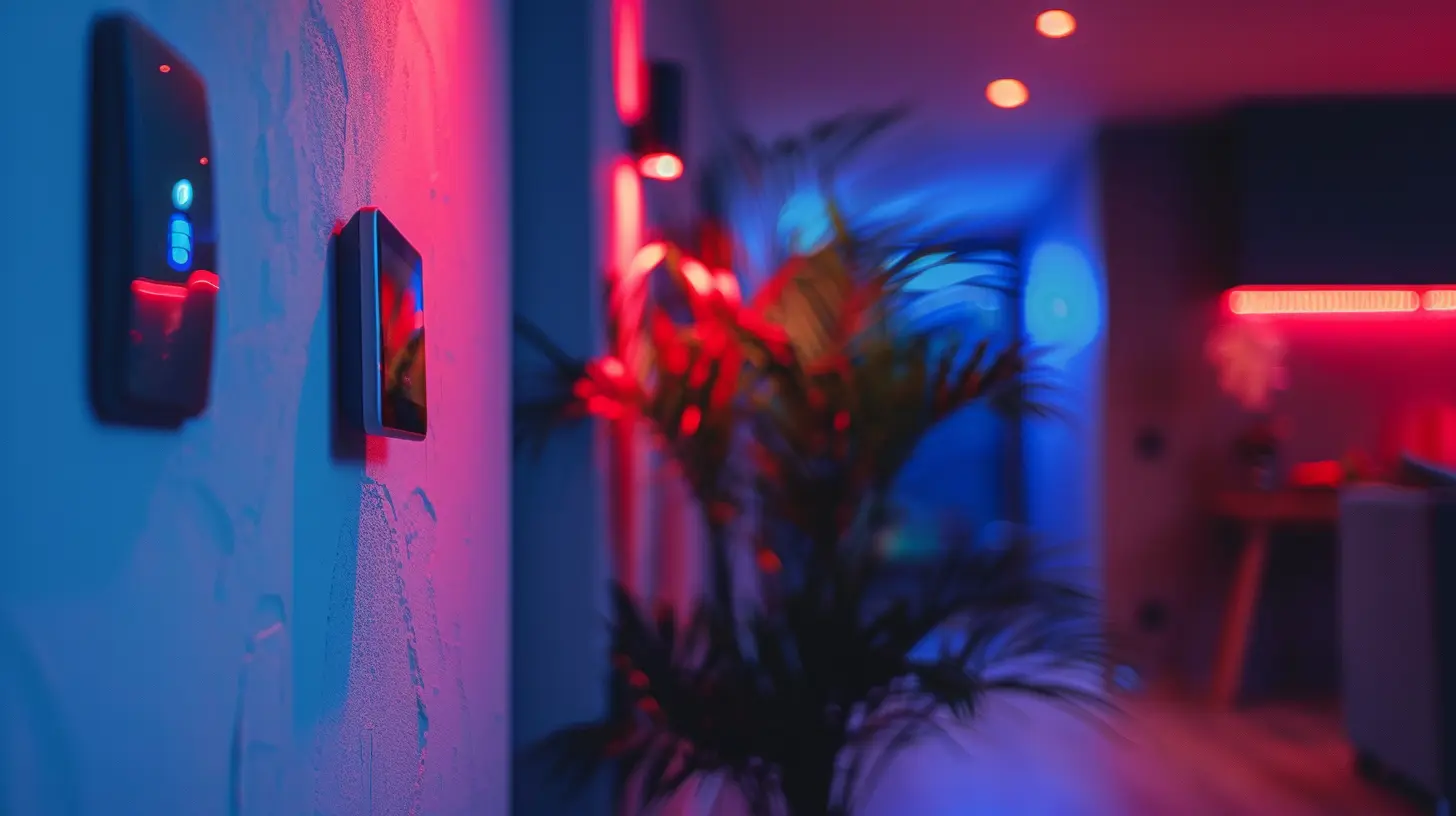
What Is Smart Home Security?
Smart home security refers to systems designed to keep your home secure using cutting-edge technology. Unlike traditional alarm systems that simply make a sound when triggered, smart security systems are connected to the internet and can communicate with other devices, send alerts to your smartphone, and even allow you to control locks, cameras, and sensors from anywhere in the world.Imagine getting a notification on your phone when someone rings your doorbell. Or being able to lock your door with a voice command while lying in bed. That's smart home security in action!
These systems typically include various devices such as security cameras, smart locks, motion detectors, and automated lighting systems. They all work together to create a network of protection, offering homeowners peace of mind that their property is being monitored 24/7.
The Evolution of Home Security
Back in the day, home security was pretty basic. You had a lock on your door, maybe a chain, and if you were really fancy, you had a burglar alarm. Fast forward to today, and technology has completely transformed the way we approach home safety.The rise of the Internet of Things (IoT) has made it possible to connect everyday devices to a network, allowing them to communicate with each other. This has been a game-changer for home security, providing new levels of control, automation, and customization.
Now, instead of relying solely on a single alarm system, you can create an entire ecosystem of smart devices that work together to protect your home. It's like upgrading from a basic toolkit to a fully-automated high-tech security team.
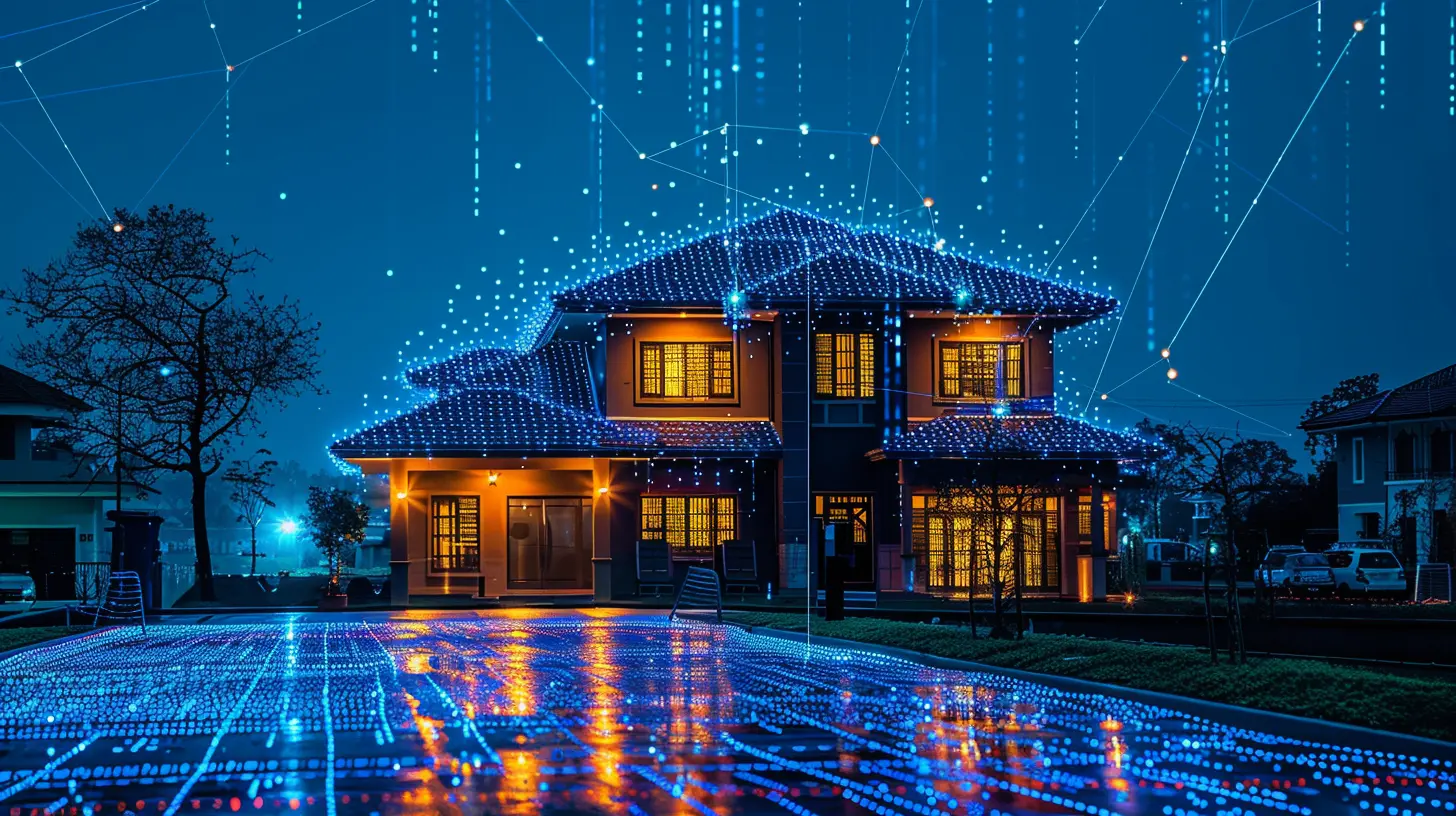
How Smart Home Security Protects Your Home
So, how exactly do these systems protect your home? Let’s break it down.1. Real-Time Monitoring
One of the biggest advantages of smart home security is real-time monitoring. With traditional systems, you'd have to wait until something happened to react. Now, with smart cameras and sensors, you can keep an eye on your home from anywhere, in real-time.Whether you're on vacation or just at work, you can check live feeds from your security cameras directly on your smartphone. If motion is detected, you’ll get an instant notification, allowing you to take immediate action.
2. Remote Access and Control
Gone are the days of wondering if you left your front door unlocked. With smart locks, you can control your door's lock from anywhere using an app. If a friend or a family member needs to get inside while you're away, you can unlock the door for them remotely.Smart home security also allows you to arm or disarm your system from any location. Forgot to activate the alarm before you left the house? No problem, just tap your phone. You’re always in control, no matter where you are.
3. Customizable Alerts
Another key benefit is the ability to customize alerts. Smart home systems let you define what triggers a notification. Want to know every time a door is opened or a window is broken? You can set that up. Or maybe you just want alerts when someone steps into your yard after dark—totally doable.These customizable alerts ensure that you’re only notified about what matters most to you, preventing unnecessary distractions while still keeping you in the loop about potential threats.
4. Deterrence
Sometimes, the best defense is a good offense, and smart home security systems can deter criminals from attempting to break into your home in the first place. Security cameras, especially those that are visible outside your house, can make would-be burglars think twice.Plus, many smart doorbells and cameras come equipped with two-way audio, allowing you to speak to whoever is at your front door. Imagine the surprise on a potential intruder's face when they realize you're watching them from halfway across the world!
5. Emergency Response Integration
Many smart home security systems are integrated with emergency services. For example, if a smoke or carbon monoxide detector is triggered, your system can automatically notify the fire department. In the event of a break-in, some systems will alert the police on your behalf. This immediate response can be crucial in preventing serious damage or injury.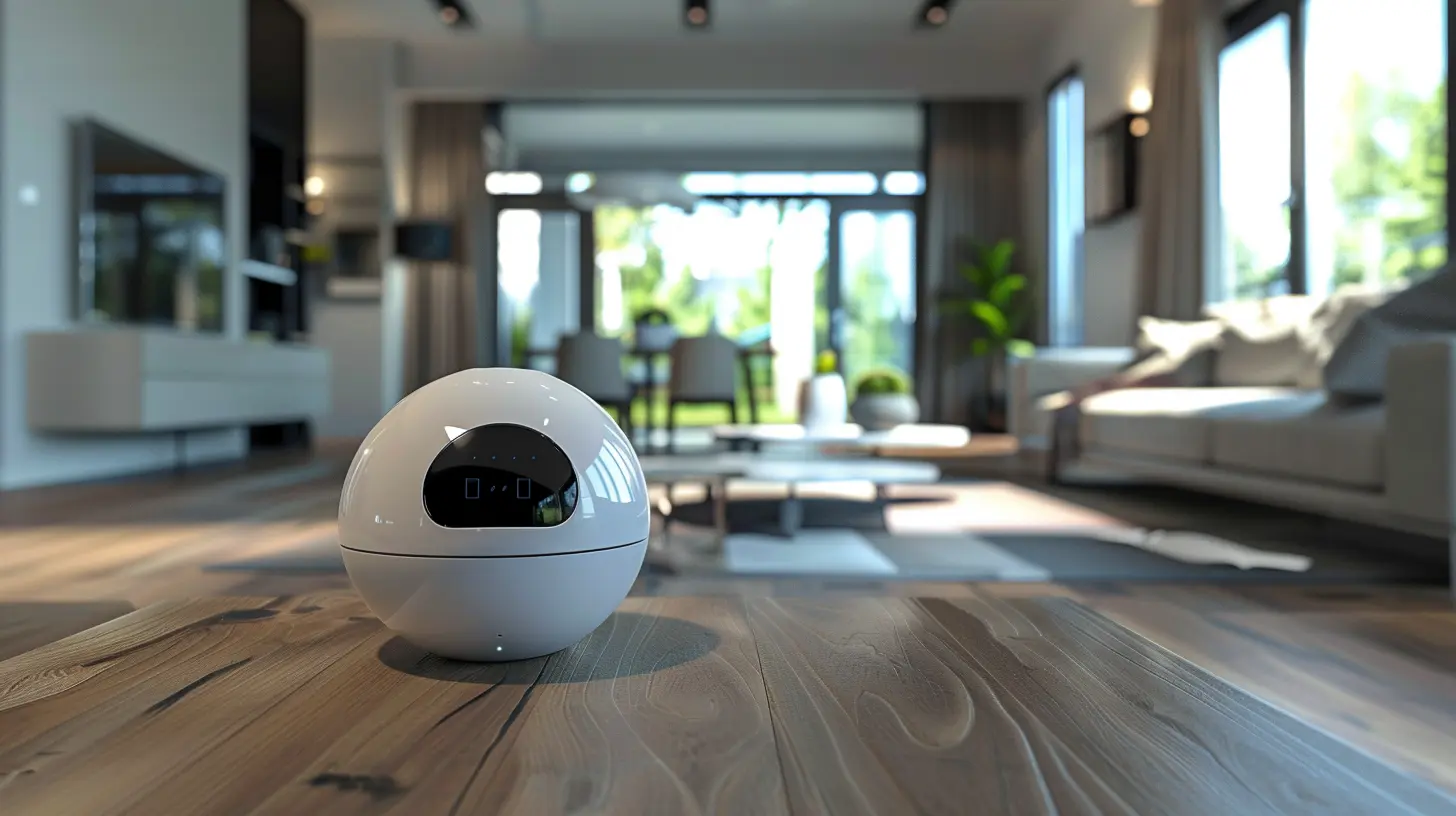
Key Smart Home Security Devices
Now that you know how smart home security works, let’s look at some of the key devices that make up these systems.1. Smart Cameras
Smart security cameras are the cornerstone of any good home security system. Whether indoor or outdoor, these cameras allow you to monitor your home in real-time. Most smart cameras come with features like night vision, motion detection, and wide-angle lenses, giving you a complete view of your property.Some popular smart camera brands include:
- Ring: Famous for its video doorbells, Ring also offers a range of indoor and outdoor cameras.
- Nest: Known for its sleek design and integration with Google Home, Nest cameras provide high-definition footage and advanced features like facial recognition.
- Arlo: Arlo cameras are wireless and battery-powered, making them easy to install anywhere.
2. Smart Locks
Smart locks make it easy to secure your home without the need for traditional keys. You can lock or unlock your door remotely, set up automatic locking schedules, or give temporary access codes to guests.Some of the best smart lock options include:
- August Smart Lock: Retrofitted to work with your existing deadbolt, August Smart Locks are easy to install and come with features like auto-locking and voice control.
- Schlage Encode: This smart lock integrates directly with Amazon Alexa for hands-free control and can be accessed remotely via an app.
3. Video Doorbells
Ever wish you could see who's at your door, even when you’re not home? That’s where video doorbells come in. Equipped with a camera, two-way audio, and motion sensors, video doorbells let you see and speak with visitors from anywhere.Popular video doorbells include:
- Ring Video Doorbell: One of the most well-known options, offering HD video, motion detection, and compatibility with Alexa.
- Nest Hello: Provides continuous recording and facial recognition, so you’ll always know who’s at your door.
4. Motion Sensors
Motion sensors can detect movement inside or outside your home. When triggered, they can send an alert or activate other devices like cameras or lights. These are especially useful for monitoring areas like your backyard, driveway, or entry points.Some high-quality motion sensors include:
- Philips Hue Outdoor Sensor: This motion sensor can trigger your outdoor lights when movement is detected, scaring off potential intruders.
- Ecobee Smart Sensor: Designed for indoor use, Ecobee’s sensors can also monitor temperature to help with home automation.
5. Smart Lighting
Smart lights can make your home look occupied even when you’re away. You can schedule lights to turn on and off at specific times or control them remotely from your smartphone. Some systems even allow the lights to flash when motion is detected, adding an extra layer of security.Popular smart light brands include:
- Philips Hue: Offering both indoor and outdoor lighting solutions, Philips Hue is one of the most trusted names in smart lighting.
- LIFX: Known for its vibrant, customizable colors, LIFX smart bulbs also integrate well with most home automation systems.
6. Smart Alarms and Sensors
In addition to motion sensors, smart home security systems often include devices like glass break sensors, door/window sensors, and smoke detectors. These sensors add an extra level of protection by monitoring for specific types of threats.For example:
- SimpliSafe Glassbreak Sensor: Detects the sound of breaking glass and sends an alert to your phone.
- Nest Protect: A smoke and carbon monoxide detector that can send alerts and even talk to you to explain what the issue is.
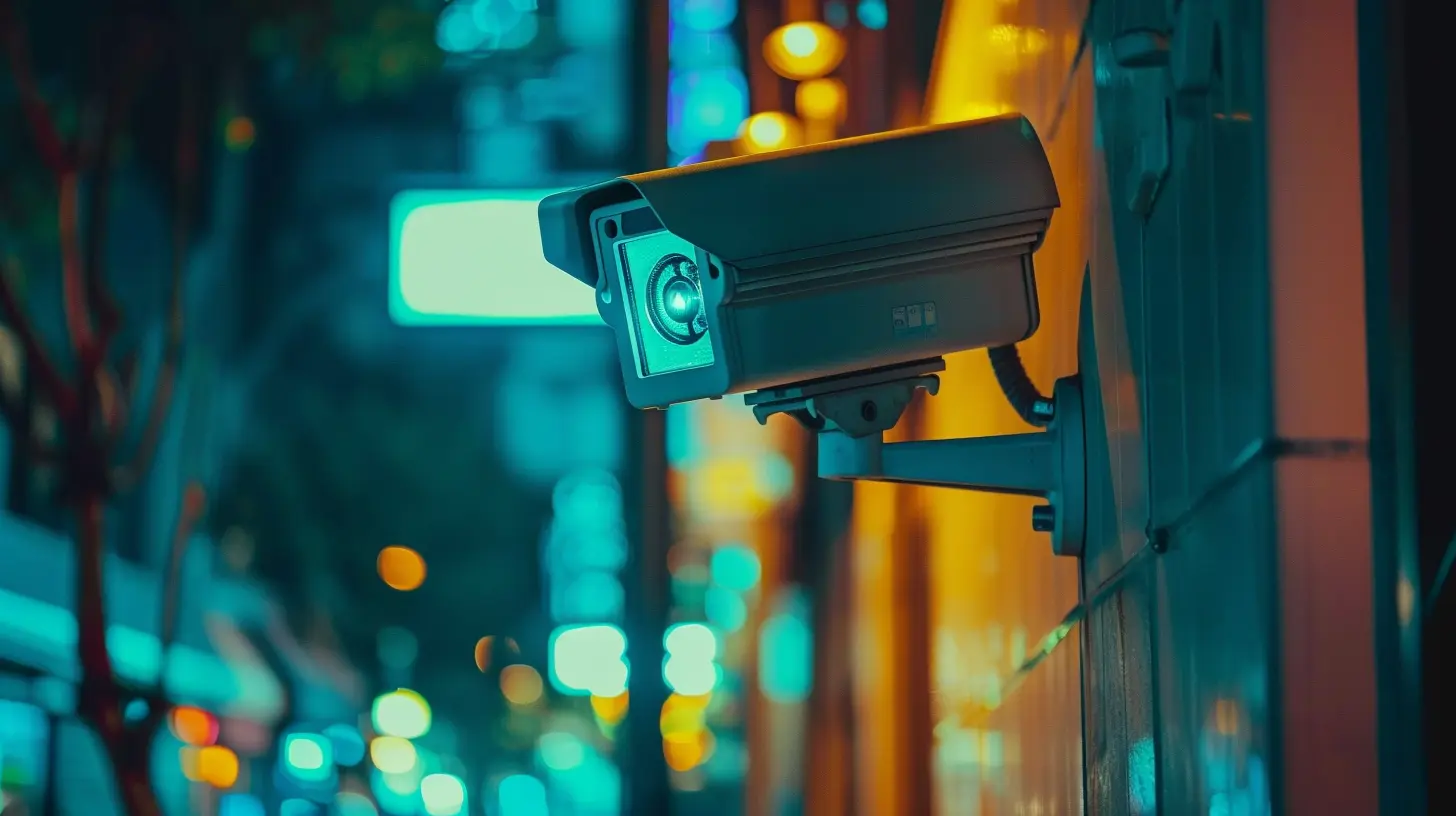
How to Choose the Right Smart Home Security System
With so many options available, how do you choose the right smart home security system for your needs? Here are a few things to consider:1. Compatibility
Make sure the devices you purchase are compatible with each other. Some systems work better together than others, so it's best to stick with brands that integrate well.2. Scalability
Think about the future. You may start with just a smart lock and camera, but eventually, you might want to add sensors, alarms, or lighting. Choose a system that allows you to scale up over time.3. Ease of Use
The best smart home security systems are user-friendly. If it's too complicated to set up or use, you won’t get the full benefit of the technology.4. Budget
You don’t need to break the bank to get a good system. Many smart security devices are affordable, and you can always start small and expand later as your budget allows.Conclusion: Is Smart Home Security Worth It?
In a world where technology is rapidly advancing, smart home security systems offer a powerful and convenient way to protect your home. They provide real-time monitoring, remote access, and customizable alerts, making them far superior to traditional security systems. Plus, they offer peace of mind, knowing that your home is always being watched—even when you're not around.Whether you're looking for a simple video doorbell or a fully automated home security network, there’s a solution out there for you. So, why not take the plunge and invest in smart home security? After all, it's better to be safe than sorry!
all images in this post were generated using AI tools
Category:
Home AutomationAuthor:

Jerry Graham
Discussion
rate this article
17 comments
Alyssa Johnson
Great insights on modern security!
February 16, 2025 at 4:19 AM

Jerry Graham
Thank you! I'm glad you found the insights valuable!
Juliana McEachern
Automated security? Let’s be real: if your door lock is smarter than you, we’ve got bigger problems. But hey, at least the robots will know when to call the cops when you forget your keys!
February 1, 2025 at 9:09 PM

Jerry Graham
While it’s true that technology can sometimes seem smarter than us, automated security systems are designed to enhance safety and convenience, not replace human judgment. They can help prevent issues before they arise!
Azura Foster
Smart homes are the future! Always great to feel secure!
January 28, 2025 at 12:27 PM

Jerry Graham
Absolutely! Smart home security offers peace of mind and convenience, making our spaces safer than ever.
Zevon McLaughlin
Great article! It's amazing how smart home security systems can simplify our lives while keeping us safe. The convenience of automated alerts and monitoring gives peace of mind, especially for busy folks. Can't wait to explore more about these technologies and enhance my own home security! Thanks for sharing!
January 21, 2025 at 1:12 PM

Jerry Graham
Thank you for your kind words! I'm glad you found the article helpful. Exploring smart home security can truly enhance both safety and convenience. Happy securing!
Ursula Morris
Great insights on the benefits of automated smart home security systems! As technology continues to evolve, it's crucial for homeowners to stay informed about the latest innovations. These systems not only enhance safety but also offer convenience. Looking forward to seeing more advancements in this field!
January 12, 2025 at 8:21 PM

Jerry Graham
Thank you! I'm glad you found the insights valuable. Staying informed about smart home security is key to maximizing safety and convenience. Exciting advancements are indeed on the horizon!
Regina McNeil
Automated systems enhance security, but user awareness and maintenance are crucial for effectiveness.
January 7, 2025 at 5:28 AM

Jerry Graham
Absolutely! While automated systems significantly boost security, user awareness and regular maintenance are essential to maximize their effectiveness. Thank you for your insight!
Maxwell James
Great insights! Embracing smart home security truly enhances peace of mind and protects our loved ones.
December 28, 2024 at 6:03 AM

Jerry Graham
Thank you! I’m glad you found the insights valuable. Smart home security is indeed crucial for safeguarding our loved ones and enhancing peace of mind.
Lysander Elliott
Great insights! Automated systems truly enhance home security and peace of mind.
December 23, 2024 at 5:59 AM

Jerry Graham
Thank you! I’m glad you found the insights valuable. Automated systems really do make a difference in enhancing security and peace of mind.
Valentina McKinstry
Imagine a world where your home knows you better than you know yourself. Dive into the shadows of smart security—are you ready for its hidden secrets?
December 20, 2024 at 9:03 PM

Jerry Graham
Absolutely! Smart security systems offer advanced insights and tailored protection, but it's crucial to balance convenience with privacy. Are we ready to embrace this new reality?
Madalyn Jimenez
Great insights! Embracing smart home security not only enhances safety but also simplifies our lives wonderfully. Keep innovating!
December 20, 2024 at 1:58 PM

Jerry Graham
Thank you! I'm glad you found the insights valuable. Embracing smart home security truly does make life easier and safer!
Diana Pacheco
Finally, a security system that watches my home while I binge-watch cat videos!
December 20, 2024 at 6:01 AM

Jerry Graham
Glad to hear you found a solution that lets you enjoy your favorite videos worry-free! Smart security really does make home watching more relaxing.
Rex Roberts
Great insights! Automated systems really elevate home security—feeling safer and smarter in my own space now!
December 19, 2024 at 12:20 PM

Jerry Graham
Thank you! I'm glad you found the insights helpful. Automated systems truly do enhance both safety and convenience in our homes!
Ranger Reilly
Embrace the future with smart home security! Automated systems empower you to protect your space effortlessly, providing peace of mind and making your home a haven of safety and innovation.
December 19, 2024 at 4:54 AM

Jerry Graham
Thank you for your insightful comment! Embracing smart home security truly enhances safety and convenience in our lives.
Soliel Wolfe
Automation enhances security, but can it be trusted?
December 18, 2024 at 3:34 AM

Jerry Graham
While automation can enhance security by providing real-time alerts and monitoring, trust ultimately depends on robust cybersecurity measures and regular updates to protect against vulnerabilities.
Soleil Porter
Great insights on home security!
December 17, 2024 at 9:15 PM

Jerry Graham
Thank you! I'm glad you found the insights helpful.
Parker Valentine
This article highlights the critical balance between convenience and security in smart home technology. As automated systems become more prevalent, understanding their vulnerabilities is essential. Users must prioritize robust cybersecurity measures to truly protect their homes from potential threats.
December 17, 2024 at 5:48 AM

Jerry Graham
Thank you for your insightful comment! Balancing convenience and security is indeed crucial in smart home technology, and prioritizing cybersecurity measures is essential for safeguarding our homes.
Clementine Roth
This article raises fascinating points about automated security systems! I’m curious—how do these technologies adapt to different living environments or user needs? Also, what impact do they have on our privacy and overall home safety?
December 16, 2024 at 12:58 PM

Jerry Graham
Thank you for your comment! Automated security systems adapt to different environments through customizable settings and AI learning, allowing them to respond to specific user needs. While they enhance home safety, it's essential to balance this with privacy considerations, as data collection can raise concerns about personal information security.
MORE POSTS
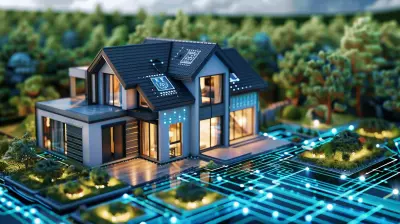
Is Wireless Home Automation the Future?
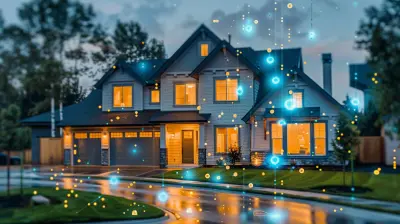
The Role of IoT in Home Automation: What’s Next?
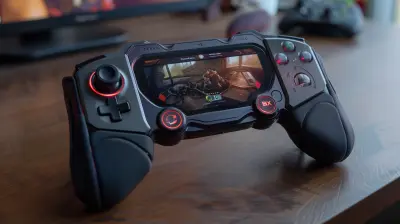
The Top Mobile Controllers to Level Up Your Gaming Experience

The Role of APIs in Accelerating Digital Transformation

Smart TVs and 8K: Is It Worth the Investment Yet?
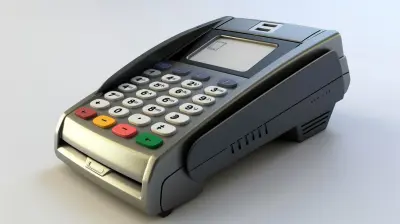
Breaking Down the Best E-Commerce Payment Gateways
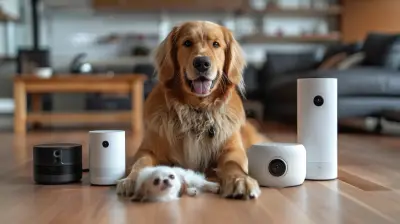
Pet-Friendly Smart Home Devices to Keep Your Furry Friends Safe

The Ethical Challenges of AI in Digital Transformation
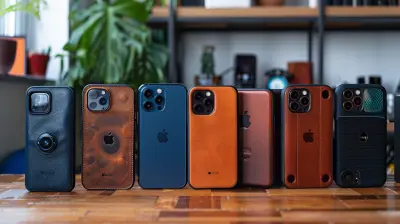
How to Protect Your Devices with the Best Tech Cases

Digital Transformation in Healthcare: From Telemedicine to AI

The Most Anticipated VR Games That Will Change the Way You Play